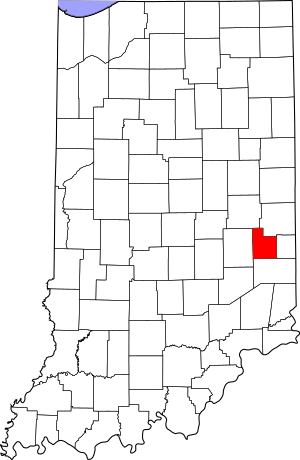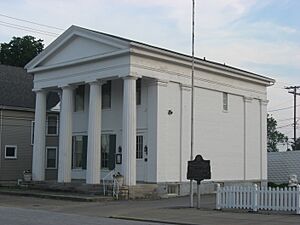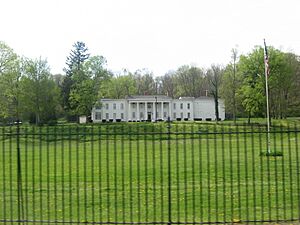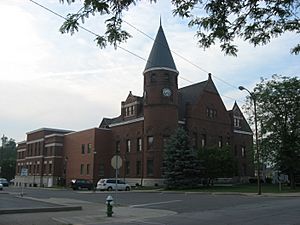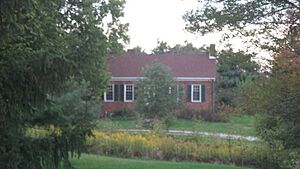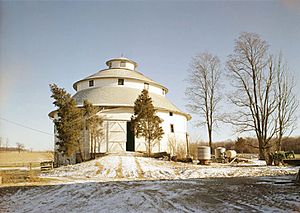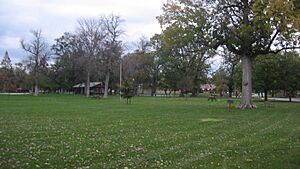National Register of Historic Places listings in Fayette County, Indiana facts for kids
Welcome to Fayette County, Indiana! This page is all about special places here that are listed on the National Register of Historic Places. Think of it like a Hall of Fame for buildings, parks, and other spots that are important to history.
The National Register of Historic Places is a list kept by the United States government. It helps protect places that are important because of their history, architecture, or what happened there. When a place is on this list, it means it's recognized as a valuable part of our country's past.
In Fayette County, Indiana, there are 8 amazing places currently on this list. There was also one place that used to be on the list but isn't anymore. You can even see where many of these places are on a map using their special location coordinates!
What is the National Register of Historic Places?
The National Register of Historic Places is the official list of places in the United States that are worth saving. These places can be buildings, structures, objects, sites, or even entire historic districts. They are chosen because they tell important stories about our past.
Being on the list helps to protect these places. It also encourages people to learn about and appreciate their history. It's a way to make sure that future generations can also enjoy and learn from these special spots.
Historic Places in Fayette County
Here are the special places in Fayette County that are currently on the National Register of Historic Places. Each one has a unique story and is an important part of the area's heritage.
Canal House
The Canal House is located at 111 East 4th Street in Connersville. This historic building was added to the National Register on July 16, 1973. It played a role in the history of canals in the area, which were important for transportation long ago.
Connersville Downtown Historic District
The Connersville Downtown Historic District is a large area in the heart of Connersville. It includes many historic buildings roughly bounded by Eastern and Grand Avenues, and East and West 4th and 9th Streets. This district was added to the National Register on March 7, 2017. It's important because it shows what a downtown area looked like and how it grew over time.
Elmhurst
Elmhurst is a historic property located south of Connersville on State Road 121. It was listed on the National Register on April 11, 1977. This site is recognized for its historical importance and unique architecture.
Fayette County Courthouse
The Fayette County Courthouse is found at 401 Central Avenue in Connersville. This important government building was added to the National Register on September 27, 2006. Courthouses are often central to a county's history, where many important decisions and events took place.
William Lowry House
The William Lowry House is located on Kniese Road, east of Bentonville, in Posey Township. This historic home was listed on the National Register on February 11, 1982. It represents the architecture and way of life from an earlier time in the county's history.
Thomas Ranck Round Barn
The Thomas Ranck Round Barn is a very unique building located north of Brownsville on County Road 500N in Waterloo Township. It was added to the National Register on January 11, 1983. Round barns are rare and were built for specific farming purposes, making this one a special piece of agricultural history.
Roberts Park
Roberts Park is a historic park located at Park Road and 30th Street in Connersville. This park was listed on the National Register on January 15, 2014. Parks like Roberts Park are important for showing how communities created green spaces for recreation and gathering over the years.
Former Listing
Sometimes, a place that was once on the National Register of Historic Places might be removed from the list. This can happen for different reasons, like if the building is changed too much or is no longer standing.
Longwood Covered Bridge
The Longwood Covered Bridge was once a historic landmark located in Roberts Park in Connersville. It was added to the National Register on December 29, 1981. However, it was later removed from the list on January 25, 1989. Covered bridges are a classic part of American history, often built to protect the wooden bridge structure from the weather.
Images for kids


